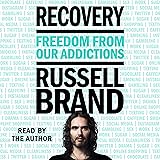The pursuit of personal discipline often feels like a battle. It is commonly believed that this struggle stems from societal pressures. We are told what success looks like. This external programming can make genuine self-love difficult. However, true discipline, it is understood, actually flows from a place of deep self-love. The video above expertly explores this concept. It highlights how we can shift our perspective on discipline. This shift transforms it from a burden to a powerful tool for personal growth. This article will expand on these crucial insights. It offers a fresh look at cultivating discipline in your life.
Redefining Discipline: An Act of Self-Love
Societal messages often dictate our worth. We hear that early risers achieve success. High income levels are often equated with being “good enough.” These external benchmarks create immense pressure. They foster feelings of inadequacy. This negative self-talk hinders true progress.
Imagine if you constantly felt judged. Imagine if every effort was met with shame. This mindset makes lasting change impossible. True change must come from within. It is recognized that discipline should be seen differently. It is not about punishment or obligation. Instead, it is an expression of care for oneself.
1. **Choosing Love Over Shame**
Many habits are adopted out of fear. We fear not being “enough.” This approach is counterproductive. Consider shifting your motivation. Actions taken from love feel supportive. They are aligned with your highest good. This perspective change is incredibly powerful. It makes habits easier to sustain.
Imagine a scenario where you want to stop late-night scrolling. The old approach might involve self-criticism. “I am so weak for doing this,” you might think. A self-loving approach would differ. You would say, “I put my phone away because I honor my rest. I deserve peaceful sleep.” This reframe removes the shame. It replaces it with genuine care.
2. **Rejecting External Timelines**
The new year often brings a surge of resolutions. There is pressure to immediately transform. This expectation can be overwhelming. It is important to remember divine timing. Our personal readiness varies greatly. Some are ready to spring into action. Others need time for introspection. This is perfectly acceptable.
The winter season is often for rest. It is a time for going inward. Nature itself demonstrates this cycle. Blossoming happens in its own time. Your inner system knows your pace. Trusting this internal guidance is vital. It prevents burnout and frustration.
Cultivating Inner Wisdom for Aligned Actions
A collective awakening has been noted. Many are questioning old paradigms. We seek our true divine purpose. This search moves beyond programmed desires. It involves identifying what no longer serves us. These could be old habits or even institutions.
3. **The Power of Self-Reflection**
Deep reflection is highly encouraged. This involves asking critical questions. “What do I truly want?” is a key one. “What reality do I dream of?” is another. These questions guide your actions. They ensure authenticity in your goals. This inner alignment creates powerful momentum.
Imagine dedicating time daily for quiet thought. Perhaps through meditation or journaling. New callings might emerge. You may discover unexpected paths. These insights are your inner guidance. They are your unique roadmap to self-realization.
Building Disciplined Habits Through Small Changes
Significant change rarely happens overnight. This journey is continuous. It is a process of constant evolution. Focusing solely on an end goal can be detrimental. It removes enjoyment from the present moment. The true joy is often found in the process itself.
4. **The “Atomic Habits” Principle**
The concept of “Atomic Habits” is well-regarded. It suggests that small changes accumulate. These daily adjustments create massive shifts. They become automatic over time. This approach avoids sudden, unsustainable overhauls. It builds consistency through tiny actions.
Imagine you want to read more. Instead of committing to an hour daily, start with five minutes. This small action is easily achieved. It builds confidence and momentum. Over weeks, these five minutes might grow. This gradual progression is more effective.
5. **Focusing on Systems, Not Just Goals**
Goals provide direction, which is important. However, systems provide the means. A system is a collection of habits. It supports your desired outcome. It is often more effective to build robust systems. This ensures consistent progress.
Consider the goal of starting a YouTube channel. A system would involve daily planning. It might include learning editing software. Consistent content creation would be key. It would focus on building this framework. This system ensures sustained effort.
Practical Strategies for Implementing Discipline
Translating intention into action is crucial. It requires clear steps. Structured planning can facilitate this. It breaks down large aspirations. This makes them manageable and achievable. This approach empowers you to move forward.
6. **Creating a Detailed Timeline**
Goal setting benefits from structure. Break down yearly goals into quarters. Further divide them into monthly objectives. Then, plan weekly and daily tasks. This creates a clear path forward. It transforms ambiguous dreams into actionable plans.
- **Yearly Goals:** Set broad intentions for the year.
- **Quarterly Milestones:** Identify major achievements within each quarter.
- **Monthly Focus:** Determine specific tasks for each month.
- **Weekly Priorities:** Outline key activities for the upcoming week.
- **Daily To-Dos:** Plan small, actionable steps each day.
Imagine wanting to learn real estate investing. This is a big goal. A timeline might set a target to complete a beginner’s course by March. Monthly, you’d dedicate time to reading specific books. Weekly, you might research different investment types. Daily, you could spend 30 minutes learning. This structured approach makes the goal tangible.
7. **Aligning Daily Actions with Your Future Self**
Every action you take contributes. It builds towards your desired future. Focus on aligning your current self. This alignment is with your future dream self. This involves conscious choices daily. It ensures you are moving in the right direction.
Imagine you aspire to be a successful entrepreneur. Your daily routine should reflect this. This might involve networking. It could mean learning new skills. It means making choices aligned with that future identity. This consistent effort reinforces your path.
Expanding Horizons: Financial Discipline and Passive Income
Financial independence is a common aspiration. Building passive income streams is a pathway. Real estate investing is often seen as complex. However, platforms exist to simplify this. They make it more accessible for many.
8. **Accessible Real Estate Investing**
Platforms like Arrived allow small investments. You can invest with as little as $100. They hand-select properties for you. This democratizes real estate access. It offers a new avenue for wealth building. This is particularly appealing for beginners.
Imagine starting your investment journey today. You might begin with a small amount. This initial step can be powerful. It allows for learning and growth. It helps you understand the industry better. This gradual engagement fosters financial discipline.
9. **Continuous Learning and Growth**
Many investment platforms offer educational resources. These help you learn the ropes. They explain how to generate returns. Utilizing these tools is a form of self-discipline. It expands your financial literacy. This knowledge empowers better decisions.
Imagine spending a dedicated half-hour each morning. You could learn about real estate trends. This consistent effort adds up. It builds a strong foundation. This self-education is invaluable. It contributes significantly to your financial discipline.
Ultimately, discipline is a journey of self-discovery. It is understood that it is an ongoing process. It should be approached with kindness. This means honoring your inner timing. It means listening to your true desires. Embracing this perspective can unlock immense personal growth and help you master genuine self-discipline.








